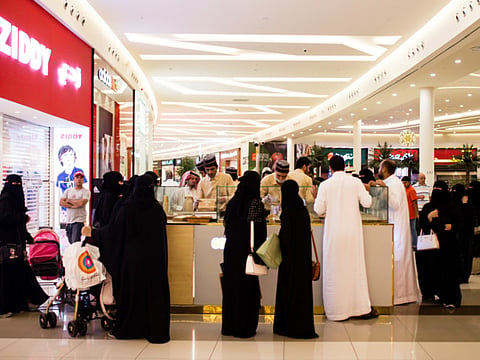Respecting civic sense should be paramount
The authorities have put in a lot of effort towards cleaning up Saudi cities, but the response from residents and visitors alike has been unimpressive

I had recently read that authorities in Dubai had stepped up their vigilance against litterbugs. Certain districts were identified to have the most offenders of this social aberration. Fines and punishment, including a jail term, would go a long way in acting as a deterrence. Judging from follow-up reports, the steps taken by the Dubai authorities seem to be working as less offences are being noted.
In Saudi Arabia, however, the problem shows no sign of slowing down. It seems that with much of the fanfare over the kingdom’s Vision 2030 announcement, some people have taken it for granted that they have a licence to litter. It certainly appears that way as I am witness to an increasing instances of littering — a practice that is showing no signs of abatement.
Annual summer vacations make the Jeddah/Makkah region a major draw among the kingdom’s premier cities, for families in towns and villages who make a beeline for the larger cosmopolitan cities and those that stride a coast line are usually the ones in greater demand. With the Red Sea in close proximity, and the relaxed and diverse nature of its inhabitants, this area remains a magnet for thousands of Saudis. A resident would quickly notice such a mass migration by the changing patterns of road traffic and people at public places such as shopping malls. The unfamiliarity of the city roads leads a lot of visitors to commit major transgressions of traffic laws, such as driving on the wrong side of the road, or driving extremely slow or fast on the freeways. Perhaps, the shortage of road networks in their towns and villages does impose some constraints on these motorists, a lot of whom drive into the big Saudi cities with their families. That naturally contributes to traffic jams.
Officials have been promising progress in this area for many years, but unfortunately most of it is just empty talk. Residents as well as visitors increasingly show a lack of respect towards traffic rules. As the city gets crowded, motorists often block pedestrians by leaving their vehicles on the sidewalks, leaving no room for others to get by. As a result, pedestrians are often forced to walk on the road.
Litter, including empty soda cans, is flung out of speeding vehicle windows and onto sidewalks or on the roads as people wander about the city. Discarded items made of paper or plastic are thrown about indiscriminately, except into the garbage cans! As a result, the city bears a dirty look.
While a father can preach his children the importance of keeping the neighbourhoods and cities clean, he must lead by example. A father who carelessly dumps trash out of his car window while driving and without giving it a further thought is often observed by his offsprings, who, in turn, will one day end up doing the same. Anyone who is not committed to this civic propriety can inadvertently influence others to follow such bad practice.
It would be unfair to suggest that all our trash and littering comes from visitors. On the contrary, we, the residents, contribute the bulk of it, either on our roads or on our sea shores. We cannot expect the authorities to continue cleaning up after us as we leave trash behind. The authorities in recent times have put in a lot of effort towards cleaning up the Saudi cities, but the response from residents and tourists alike does not augur well for a cleaner environment. It is indeed lack of respect for our surroundings and the absence of a collective will that have resulted in this mountain of trash. There are many laws against littering, but these are rarely enforced.
This social malice will not disappear unless we discipline ourselves and uphold cleanliness in every aspect of our lives. Keeping our surroundings and the environment clean is a collective responsibility.
— Tariq A. Al Maeena is a Saudi socio-political commentator. He lives in Jeddah. You can follow him on Twitter at www.twitter.com/@talmaeena


